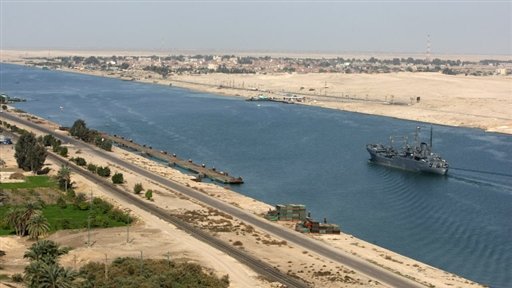AFP – Nigeria’s financial markets posted healthy gains in 2013 but five years on from the global financial meltdown, local investors are still wary of sinking their money into stocks.
The market capitalisation of the nearly 200 listed companies on the Nigeria Stock Exchange (NSE) rose by 41% in the 12 months to 31 December to around 13tn NGN ($58bn).
The All-Share Index on west Africa’s leading bourse closed up nearly a third over the year, to 41,329.19 points.
The figures indicated that the market appears to have rebounded well from the global meltdown, which saw some 8tn NGN wiped off the value of stocks.
Industry operators said the market has been buoyed by foreign investors looking for bargains.
“Foreigners made our capital market their investment destination as a lot of shares were selling far below their par value following the 2008 financial crash,” broker Mukaila Alogba told AFP.
Investments from offshore accounted for some 60% of total transactions in the stock market in 2013, he added.
Also, the World Bank’s International Finance Corporation, which backs private enterprise, floated 12bn NGN in bonds to lure investors into Nigeria’s nascent capital markets, he said.
“The IFC also approached the Securities and Exchange Commission for a naira-dominated medium-term notes programme of one billion dollars,” Alogba said.
A $1.5bn African Development Bank facility for projects by telecoms firm MTN was also driving the market, he added.
But despite the more optimistic outlook — including for the Nigerian economy as a whole — Nigerians remained wary of sinking their cash into equities.
“Local investors cannot forget in a hurry irrational manipulation of share prices which stockbrokerage firms, in connivance with banks, engaged in to cause the market crash,” said one stocks analyst.
Lagos businessman Soji Fadairo would rather forget what happened five years ago.
“Each time I tried not to remember, my memory keeps recalling how I lost my entire savings to stock market crisis,” he recalled.
“Overnight, my entire investment running to several millions of naira evaporated like air.”
Fadairo’s experience forced him to sell property in the upscale Ikeja neighbourhood of Nigeria’s financial hub to offset a 5m NGN bank loan.
“I will never put my money on stocks again. Experience they say is the best teacher,” he said.
Funke Bello, a 45-year-old civil servant, also lost out but has now dumped stocks for bricks and mortar to assure her long-term financial future.
“I used to be active on market with thousands of stocks in blue-chip companies. I was making a lot of money in terms of capital gains until the crisis,” she said.
The losses she suffered forced her to withdraw her son from his school overseas.
“I will not venture into stocks again. I am now into properties business. If you buy a house or a plot of land today and decide to sell it tomorrow, it will be at a good margin,” she said.
One senior manager at the NSE said the future looked brighter for the market on the back of strong economic indicators for the country as a whole.
The economy is predicted to grow at a rate of 7%, the naira is stable against the US dollar, inflation is at a manageable 7.9% and interest rates are favourable for savings and investment.
“A lot has changed since the global recession,” said the official, who requested anonymity.
“Investors are also enjoying high returns on investment due to impressive performances of quoted companies,” he said.
The official urged reluctant investors to take advantage of the gains and pointed to new regulations to protect investors.
“We are poised to promote good corporate governance as well as prevent inside dealings and abuse in the market,” he said.

